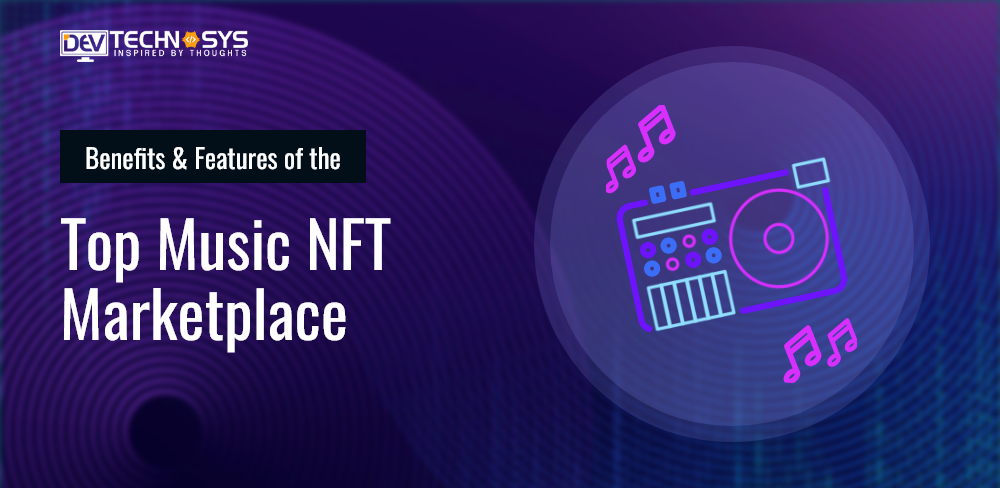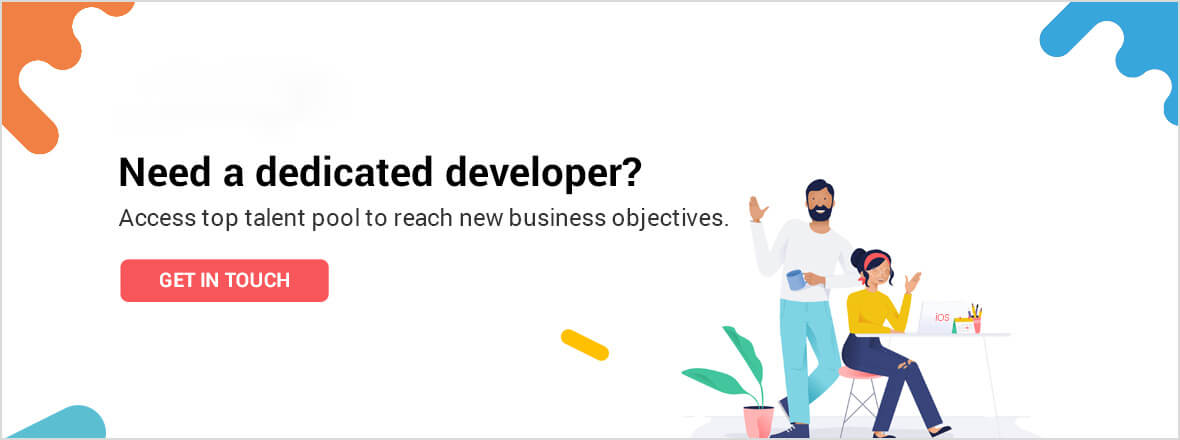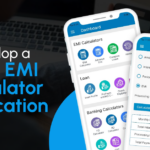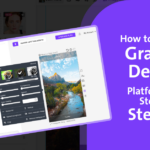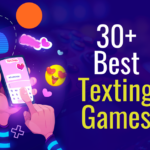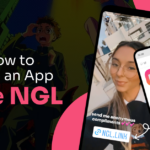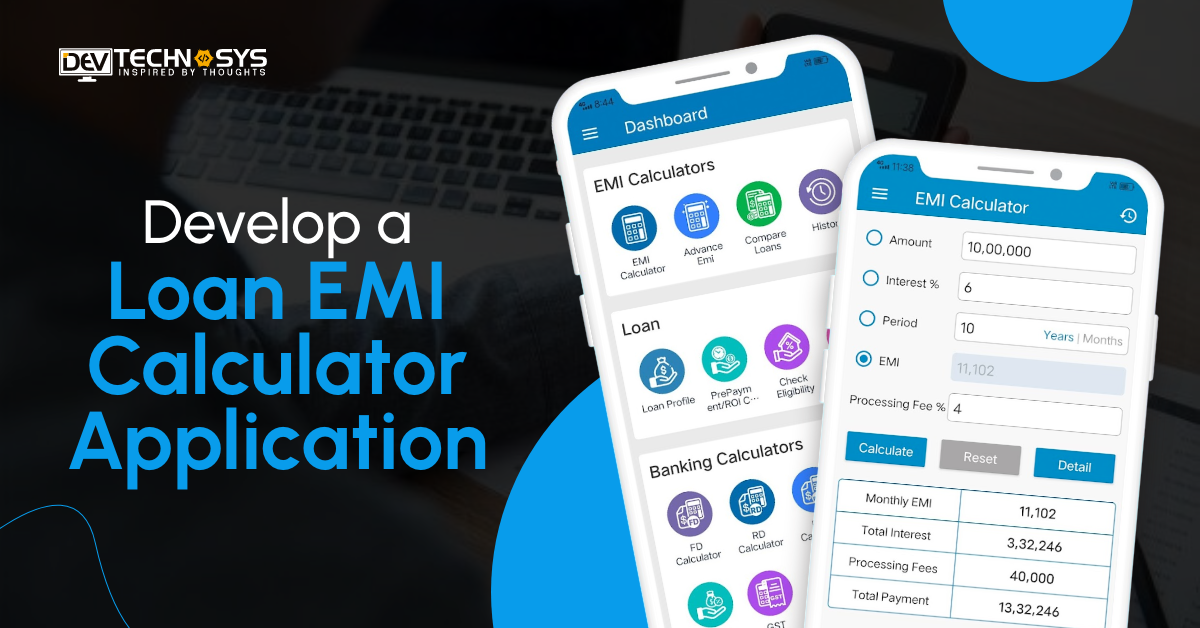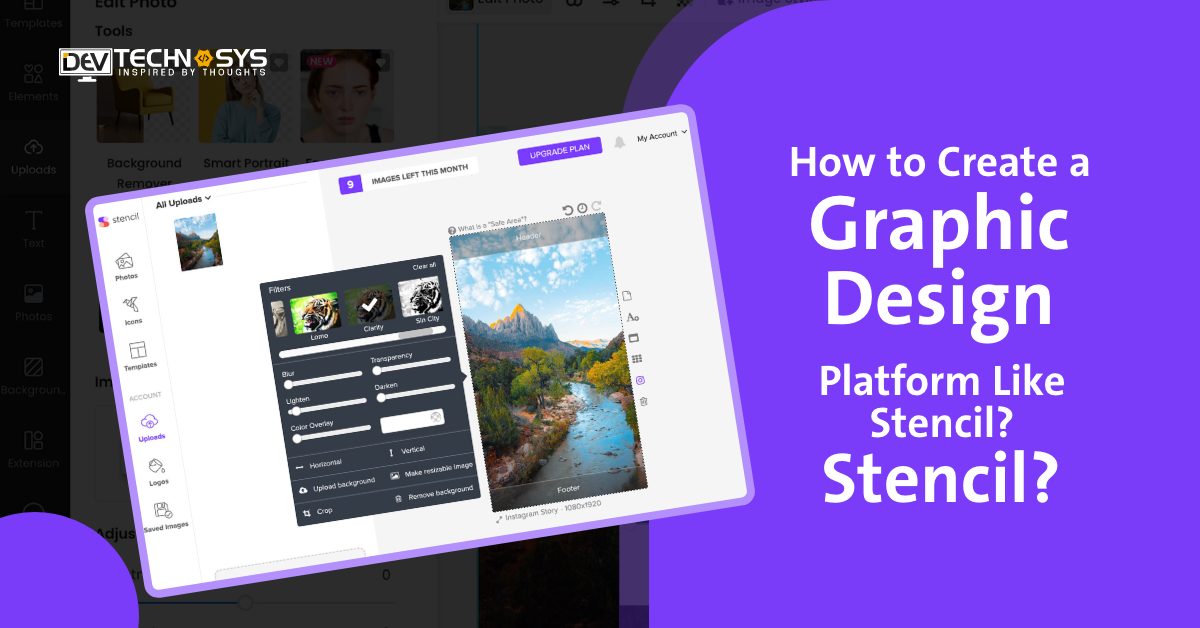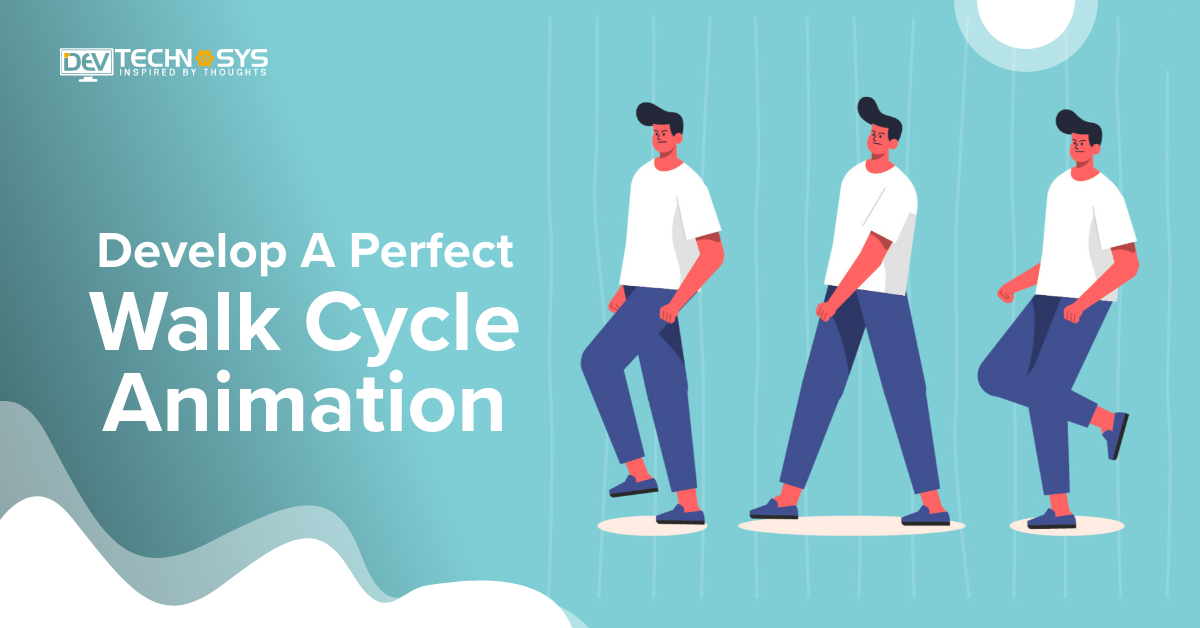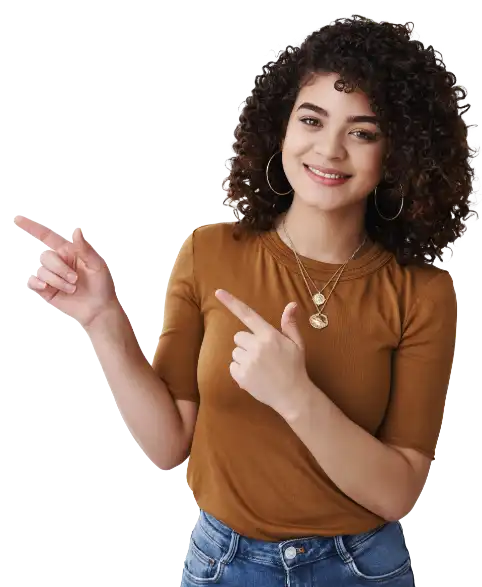Unsurprisingly, 2021 was a phenomenal year for the NFT marketplace. Thinking about the benefits & features of the top music NFT marketplace, especially regarding NFT marketplace development. King of Leon filed an NFT in 2021, making history as the first band to do so.
Music NFTs gained traction among other artists not long after they became famous. Artists interact differently with their fans thanks to music NFTs. The top music NFT marketplace has been the subject of much discussion, but before we overwhelm you with all the benefits and features, let’s talk a little bit about why everyone is talking about it.
Artists can mint and sell NFTs easily through a music NFT marketplace. Music NFTs could then be purchased directly by fans without the involvement of a middleman. Several new marketplaces are opening up frequently in terms of minting and selling a piece of music as an NFT.
Table of Contents
What is The Music NFT Marketplace?
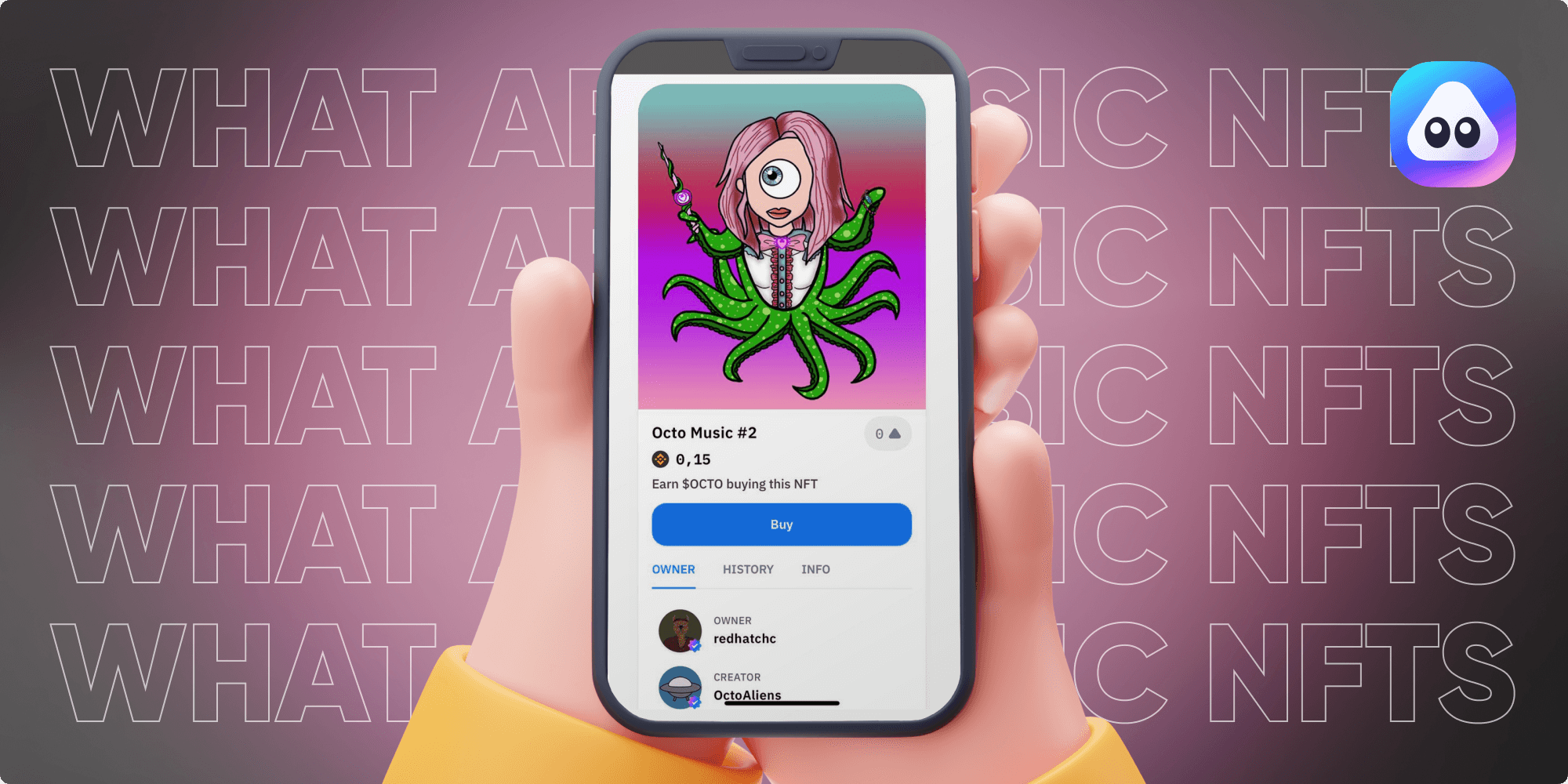
A Music NFT Marketplace is a platform where musicians and artists can create and sell non-fungible tokens (NFTs) representing their music, typically in digital collectibles or unique experiences. These NFTs can be bought and traded like traditional collectibles but also include the rights to access and listen to music.
Furthermore, they may include other features such as exclusive content or life experiences. In addition, they are built on blockchain technology, ensuring the authenticity and scarcity of the NFTs.
Magnificent Top Music NFT Marketplaces
There is several Music NFT Marketplaces that have emerged in recent years. Some of the top ones include:
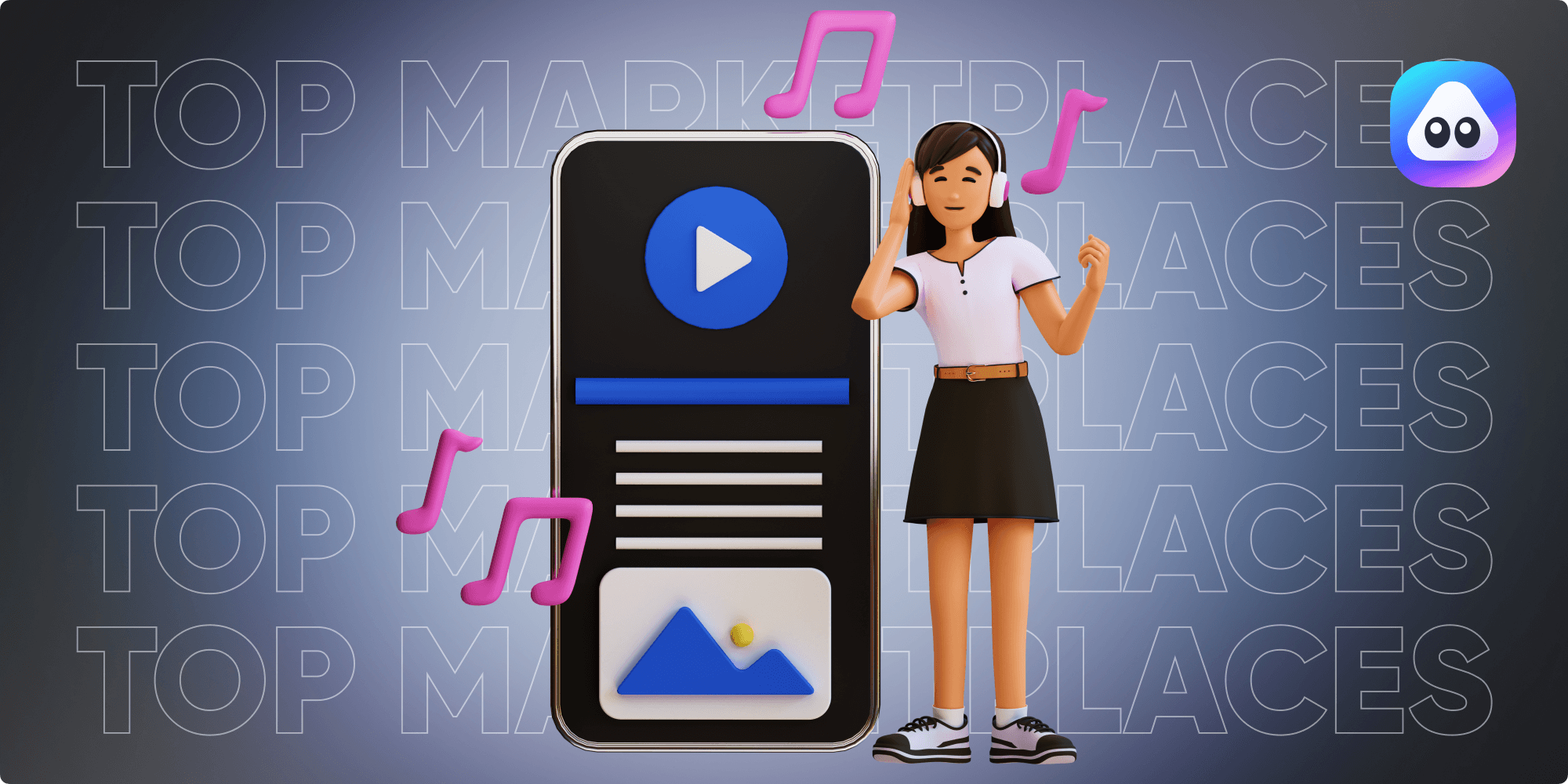
1. SuperRare Marketplace
SuperRare is one of the most incredible Music NFT Marketplaces. Blockchain technology enables artists to produce and market distinctive digital art creations. Creating non-fungible tokens (NFTs), which are unique digital assets that cannot be replicated, is the means by which these artworks are represented.
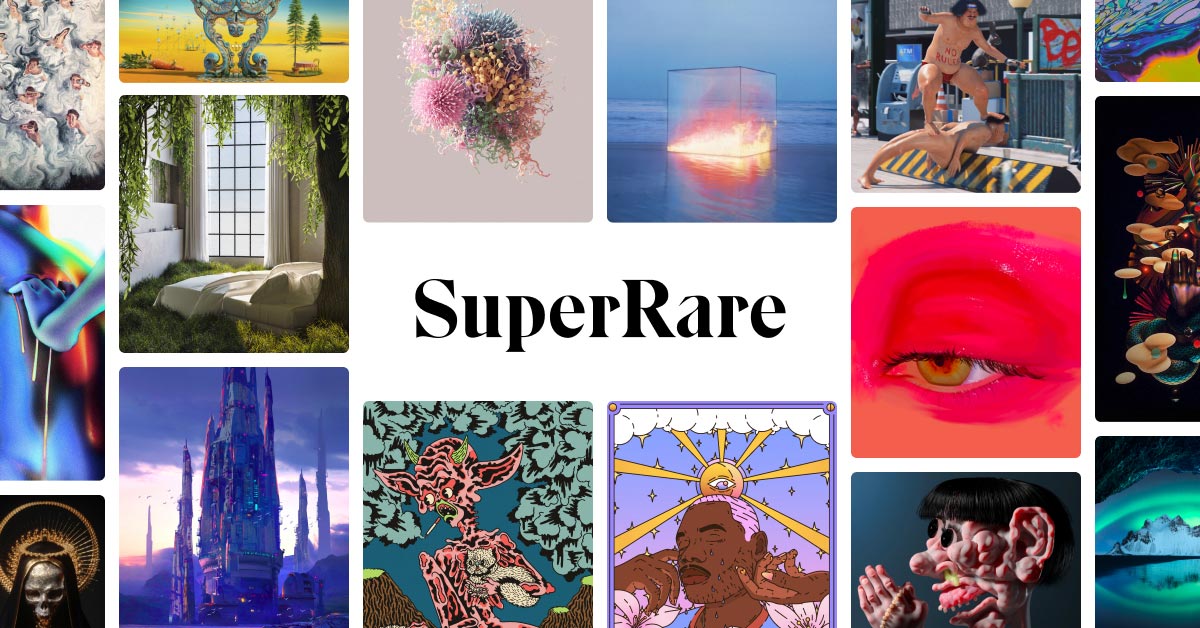
Features of SuperRare
- Unique Digital Artworks
- Curated Marketplace
- Social Features.
- Smart Contract Functionality
- Cryptocurrency Payments
- Supporting Emerging Artists
- Access To Limited Editions and Rarer Artworks
2. Audius Marketplace
The Audius platform streams and shares music based on the blockchain. It allows independent artists to upload and share their music and provides a decentralized music distribution system that aims to reduce the power of major record labels and streaming platforms.
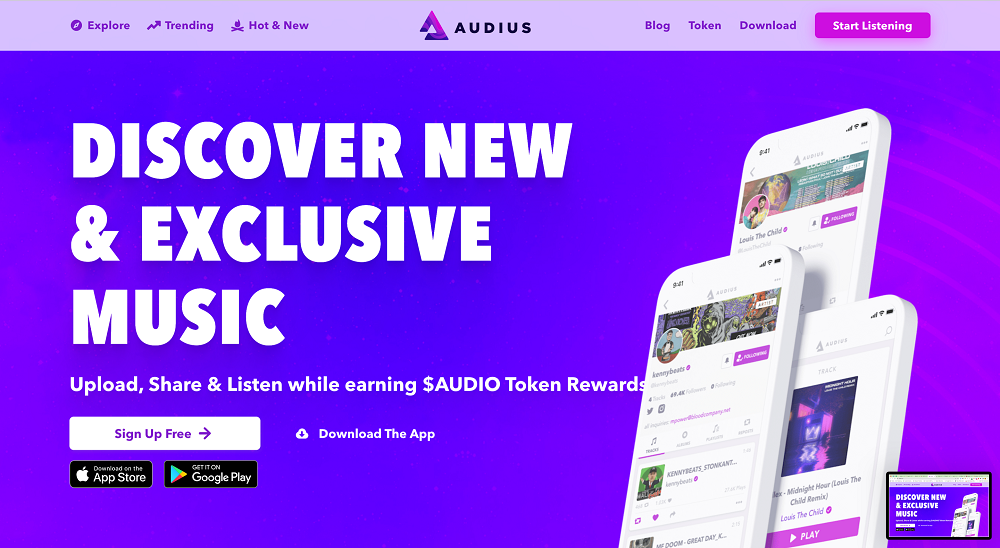
Users can also earn AUDIO tokens by participating in the platform by staking their tokens to vote on governance proposals or by curating playlists.
Features of Audius
- Decentralized Music Distribution
- Streaming And Download
- Token-Based Ecosystem
- Crypto Payment Gateway
- Playlist Curation
- Community-Driven Governance
- Transparency
- Copyright Protection
- Royalty Splits
3. Rarible Marketplace
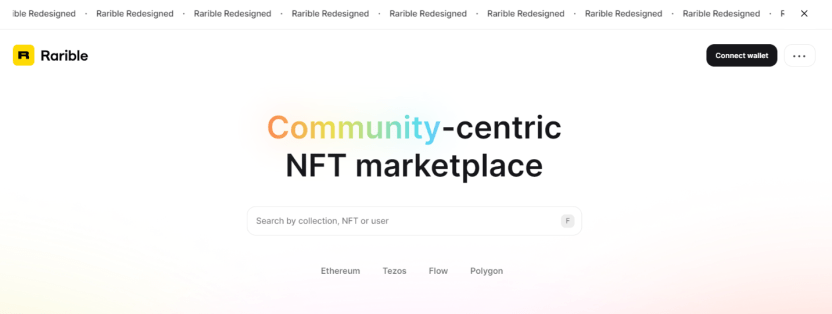
Rarible marketplace is an online platform built on the Ethereum blockchain that allows users to buy and sell unique digital items, such as art, collectibles, and other digital assets, using non-fungible tokens (NFTs). Music NFT Marketplace is digital assets that are unique and cannot be replicated, and they are used to represent digital items on Rarible.
Features of Rarible
- Buying and selling of NFTs using cryptocurrency (primarily Ethereum)
- The ability to mint your own NFTs and set your prices
- A marketplace to discover and purchase unique digital items such as artwork, collectibles, and more
- An open and decentralized platform built on the Ethereum development
- A built-in wallet to store your NFTs and cryptocurrency
- Customizable store pages for creators to showcase their NFTs
- The ability to bid on items and participate in auction sales
- The ability to hold and transfer ownership of unique digital assets
4. KnownOrigin Marketplace
KnownOrigin is a platform for buying and selling digital art, such as digital paintings and illustrations. It is built on the Ethereum blockchain and uses non-fungible tokens (NFTs) to represent ownership of digital artworks. It allows for a secure and transparent way for artists to sell their work and for collectors to own and authenticate digital art pieces.
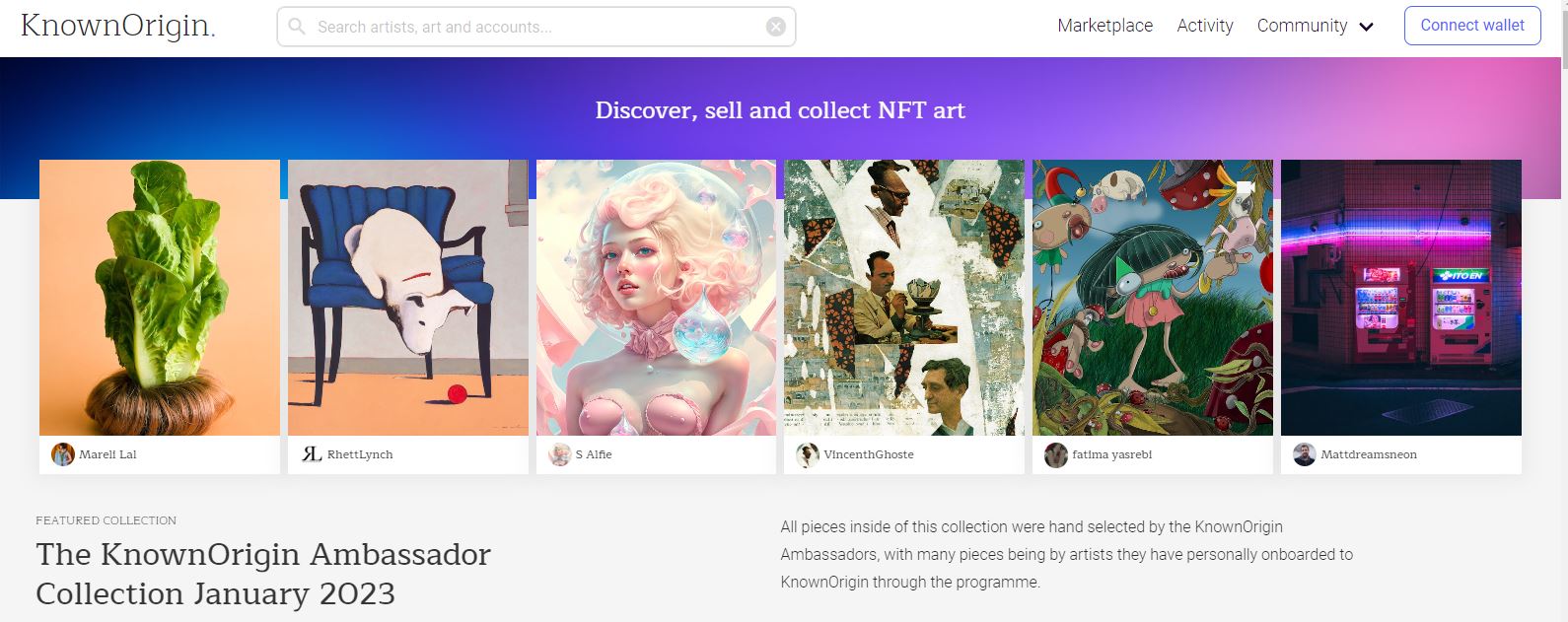
To create a platform like KnownOrigin, you must get in touch with the best blockchain development services.
Features of KnownOrigin
- Authentication
- Ownership
- Reselling
- Discoverability
- Royalties
- Support For Different Media
- Wallet Integration
- Community
5. Nifty Gateway
Nifty Gateway is an online marketplace for buying and selling digital art and collectibles. It allows artists to create and sell one-of-a-kind pieces and for collectors to purchase and own unique digital assets. The company also hosts live online sales events featuring exclusive artwork from well-known artists.
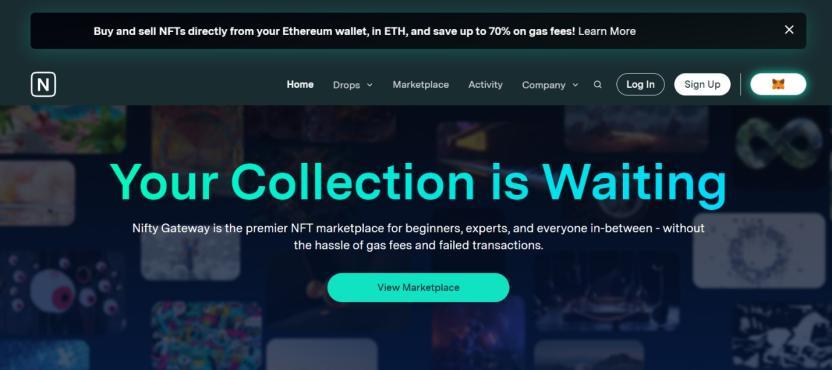
Features of Nifty Gateway
- Limited Edition Digital Collectibles
- Authenticity And Provenance
- Direct Artist-To-Fan Sales.
- Community And Social Features
- Support For Multiple Digital Formats
- Payment Gateway Integration
- Integrations With Other Platforms
6. OpenSea Marketplace
OpenSea is a marketplace for buying, selling, and digital trading assets, such as digital collectibles, virtual real estate, and in-game items. OpenSea is built on the Ethereum blockchain, which allows for creation of unique and verifiable digital assets that can be bought, sold, and traded like physical assets.
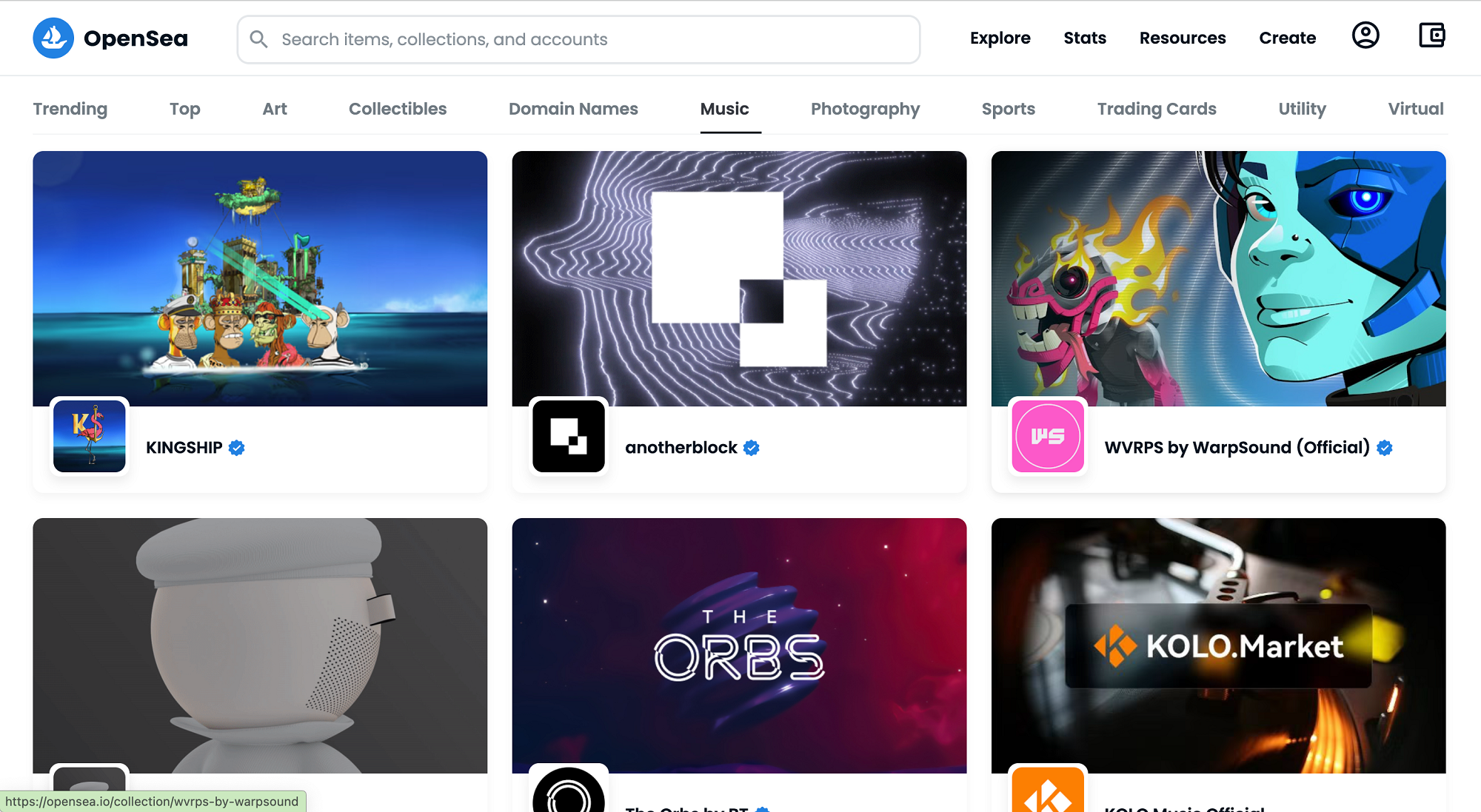
Features of OpenSea
- Buying And Selling Non-Fungible Tokens (Nfts)
- Discovering New Assets
- Customizable Storefronts
- Built-In Wallet:
- Meta Data & Customizable Metadata
- Secondary Market
- Support For ERC-1155
7. Zora Marketplace
Zora is a decentralized marketplace for buying and selling non-fungible tokens (NFTs). It allows creators to mint, sell and trade their digital assets on the Ethereum blockchain.
The platform is built on the InterPlanetary File System (IPFS) and uses smart contracts to facilitate transactions. The marketplace aims to provide a decentralized, open, and accessible platform for creators and collectors to engage with NFTs.
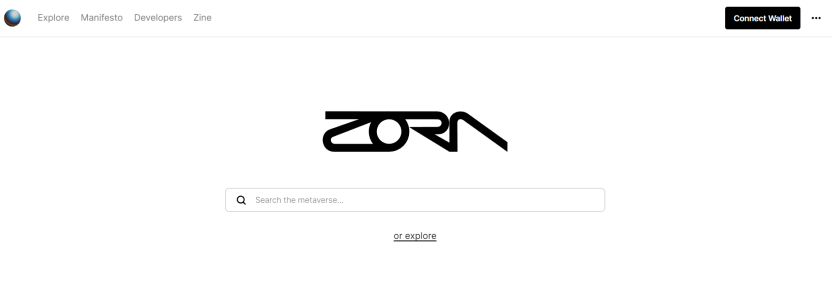
Features of Zora
- Decentralized
- Accessible
- Smart Contracts
- Customizable
- Community Focus
- Multi-Chain
- Simple and User-Friendly Interface
8. Mintable Marketplace
The mintable marketplace is a platform for buying and selling non-fungible tokens (NFTs). It allows creators to mint and list their NFTs for sale and buyers to purchase and own unique digital assets such as artwork, collectibles, and other digital items.
The marketplace is built on the Ethereum blockchain, which allows for creating and owning individual digital assets that can be bought, sold, and traded.
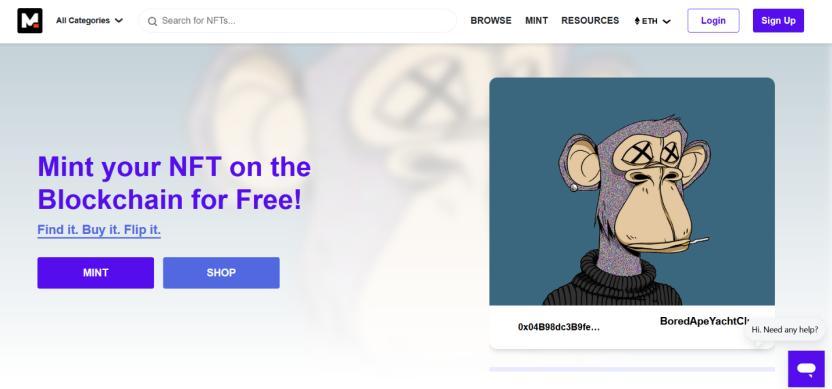
Features of Mintable
- Token minting
- Customizable storefronts
- Built on the Ethereum blockchain
- Easy to use
- Secure
- Order book and trading history
- Escrow
- Multi-Language support
- Community
- Mobile App
9. Enjin Marketplace
Enjin Marketplace is a decentralized marketplace that allows users to buy, sell, and trade digital assets, including non-fungible tokens (NFTs). The marketplace is built on the Enjin Blockchain Platform and is powered by the Enjin Coin (ENJ) token.
The Enjin Marketplace allows users to create online stores, list items for sale, and accept payments in various cryptocurrencies, including ENJ. In addition, the marketplace also creates customizable storefronts, which can be used to promote and sell digital assets, including NFTs.
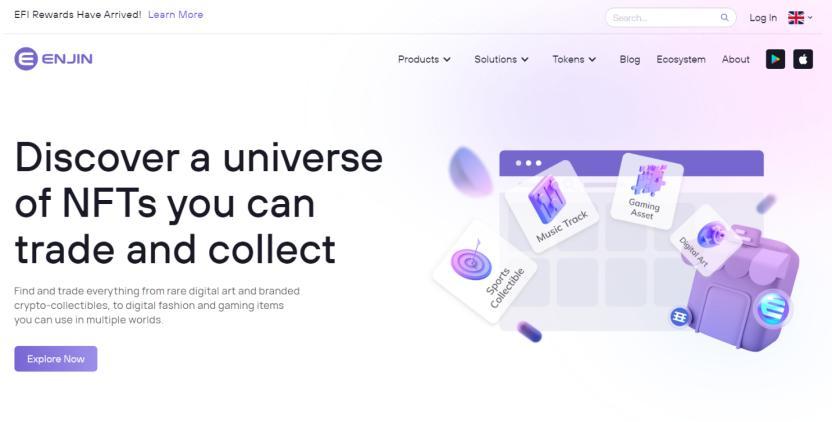
Features of Enjin Marketplace
- Decentralized Marketplace
- Built on the Enjin Blockchain Platform
- Powered by Enjin Coin (ENJ)
- Customizable Storefronts
- NFTs
- Smart Contract-based items
- Interoperability
- Security
- Identity and Reputation
10. Blockparty Marketplace
Blockparty is a marketplace for buying and selling non-fungible tokens (NFTs). NFTs are unique digital assets stored on a blockchain, representing things like digital art, collectibles, and virtual real estate. Blockparty allows users to buy and sell NFTs using cryptocurrency and provides tools for creators to mint and manage their own NFTs.
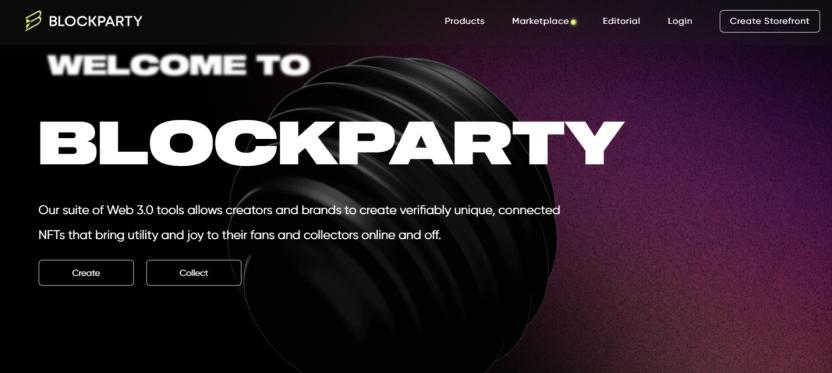
Features of Blockparty
- Buying and Selling NFTs
- NFT Minting
- NFT Management
- Cryptocurrency Support
- Community Features
- Access Control
- NFT Showcase
- Secure and Transparent
- Access to a Wide Variety of NFTs
Benefits of Top Music NFT Marketplaces
1. Benefits of SuperRare
For Artists:
- Provides a platform for artists to showcase and sell their unique digital artworks to a global audience.
- It helps artists interact with their viewers and build a society all over their work.
- Provides artists with a secure and transparent way to sell their artworks using blockchain technology and Smart Contract Development.
- It gives emerging artists a space to gain exposure and jumpstart their careers.
- It also provides a way for them to earn money from their digital artwork.
For Collectors:
- Offers a curated marketplace for high-quality, unique digital artworks.
- Provides a secure and transparent way to buy and own digital art using blockchain technology and smart contracts.
- Allows collectors to own and display limited and rare artworks which can only be found on the platform.
- It also offers the ability to trade their artworks with other collectors.
- It provides collectors with the opportunity to invest in digital art, which has the potential to appreciate over time.
- For both parties, it also offers a way to transact in cryptocurrency, which can provide an additional level of security and convenience.
If you’re one of the individuals intrigued by the factor music NFT marketplace, it will lead you towards fantastic music streaming app development.
2. Benefits of Audius
- Decentralized Architecture
- Lower Fees for Artists
- Fair Distribution of Royalties
- Community-Driven
- Censorship Resistant
3. Benefits of Rarible
- Buying And Selling Unique Digital Items
- True Ownership
- Security
- Transparency
- Decentralized
- Ability To Discover New Artists
4. Benefits of KnownOrigin
- Authenticity
- Ownership
- Discoverability
- Royalties
- Support For Different Media
- Wallet Integration
- Community
- Immutable Provenance
- Accessibility
- Cost-Effective
5. Benefits of Nifty Gateway
For Artists:
- Direct Access To Fans
- Increased Control Over Their Art
- Greater Visibility
- Protection Of Their Work
For Collectors:
- Access To Limited-Edition, Unique Collectibles
- Provenance And Authenticity
- Connection To The Artist
- Potential For Appreciation In Value
6. Benefits of OpenSea
- Security
- Ownership
- Interoperability
- Liquidity
- Transparency
- Decentralization
7. Benefits of Zora
- Decentralized Ownership
- Increased Security
- Lower Fees
- Increased Privacy
- Open Source
- Liquidity
8. Benefits of Mintable
- Increased Accessibility to NFTs
- Greater Liquidity
- Transparency
- Security
- Customizable Storefronts
- Community
- Mobile App
- Easy to Use
- Order Book and Trading History
- Increased Value for NFTs
9. Benefits of Enjin Marketplace
- Security
- Decentralization
- Low Fees
- Access to a Wide Range of Digital Assets
- Interoperability
10. Benefits of Blockparty
- Decentralization
- Security
- Low Fees
- Access to Unique NFTs
- Community
How to Develop a Music NFT Marketplace?
If you want to create an incredible competition to mentioned above this music NFT marketplaces then it is important to take several steps:
1. Research
The requirements and preferences of musicians and music collectors can be determined by conducting market research.
2. Decide on a Blockchain Platform
Choose a blockchain platform that fits your requirements. Although Ethereum is a well-liked option for building NFTs, there are also TRON, Polygon, and Binance Smart Chain.
3. Create UI/UX
Create a user-friendly mobile app or website for your marketplace. Users will primarily use this interface to browse and buy NFTs.
4. Establish Integration
Include the blockchain platform and smart contract of your choice in your website or application. As a result, NFTs can be created, transferred, and owned.
5. Development Stage
Make a platform where musicians can upload their work and make NFTs. A submission procedure and a method for musicians to determine the costs and royalties associated with their NFTs could be included. To support your marketplace, create a community of musicians, collectors, and lovers.
6. Testing & Launch
Before launching, thoroughly test your market. You can launch your marketplace and begin marketing it once everything is ready.
Remember that creating a music NFT marketplace is challenging and calls for expertise in web development, user experience design, smart contract development, and blockchain technology.
How NFT Marketplace Transforms The Music Industry?
Let’s look at market stats to understand how the NFT marketplace has affected the music industry.
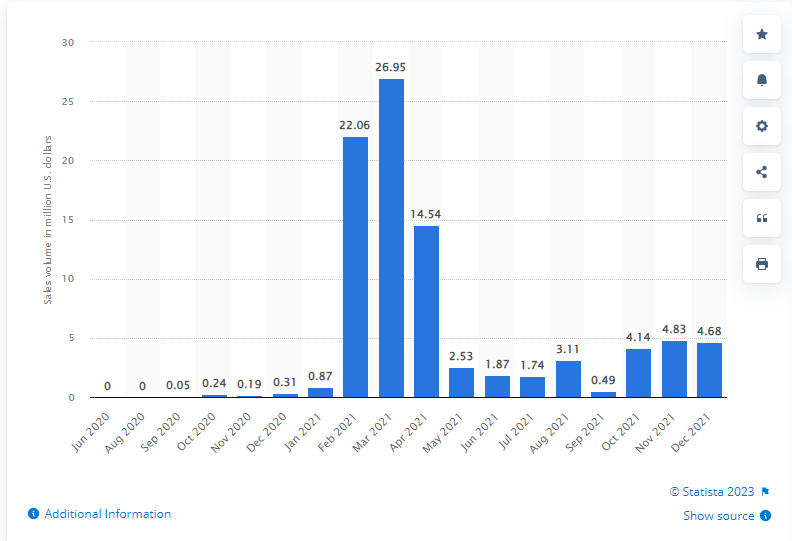
- A first-of-its-kind NFT release by a signed artist – Kings of Leon’s album from March 2021 – sold around two million U.S. dollars.
- In November 2022, NFT marketplace OpenSea had a three-times higher trading volume than Solana marketplace Magic Eden.
- By 2032, the Music NFT Marketplace is forecast to grow at a CAGR of 27.52 % to reach USD 42,380.2 million, growing at a market value of USD 1240.3 million in 2021.
- It is anticipated that the Music NFT Marketplace will reach USD 42,380.2 million by 2032, rising at a CAGR of 27.52 percent. There has been an underpayment of musicians for decades. Due to this, singers and musicians are particularly affected.
- US$3,546.00m is projected to be the revenue for the NFT segment in 2023.
- By 2027, revenues are projected to grow at a CAGR of 22.82%, amounting to US$8,068.00m.
- In 2023, the NFT segment will generate an average of US$70.46 per user.
- The United States has the highest revenue from a global comparison (US$1,005,000.00k in 2023).
Revenue Model of NFT Music Marketplace
An NFT marketplace for music may have a variety of revenue models, but some typical ways that marketplaces make money are as follows:
1. Commission Fees
Every sale made on a music NFT marketplace’s platform is subject to a percentage commission.
2. Listing Fees
Some marketplaces charge creators a fee to list their NFTs.
3. Advertising
Marketplaces can also make money from advertising by charging creators to advertise their NFTs or by charging for ad space on the platform.
4. Second-hand Shop
Some marketplaces may charge a small fee when sellers and buyers conduct business on the secondary market.
5. Additional services
Some marketplaces might charge for extra services like minting, storage, and authentication they provide to creators.
It’s important to remember that these are typical revenue models and that different marketplaces may have special means of doing so.
Ready To Talk?
Hopefully, you liked this blog, and now you know the benefits and features of the top 10 music NFT marketplace. In recent years, many well-known artists have begun using NFTs to finance significant payments in the music industry. It may cause another change after learning that NFTs can replace streaming giants and record labels.
The list of excellent music NFT marketplace we have created is incredibly designed by the large, highly qualified, skilled, and experienced NFT marketplace development services. So if you’re one of the people alluring from music NFT marketplace development, you must get in touch with the best NFT marketplace development services.
Frequently Asked Questions
How Long Does It Take To Create NFT Marketplace?
When creating an NFT marketplace, you must know that it takes around 3 to 6 months to complete the development. However, it is also vital to know that it may depend on similar factors that affect its cost.
What is The Cost To Develop the NFT Marketplace?
The Cost To Develop NFT Marketplace can vary depending on the complexity of the project and the team working on it. It can range from $20,000 for a simple, single-use NFT to $50,000 for a more complex, multi-use NFT.
Factors that can affect the cost include the need for custom intelligent contracts, the design and development of the user interface, and any additional features, such as integration with other platforms or systems.

